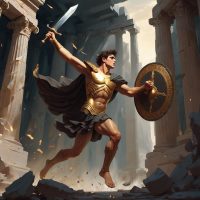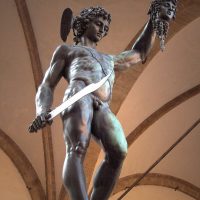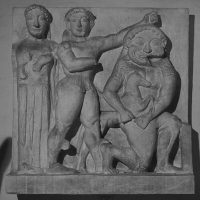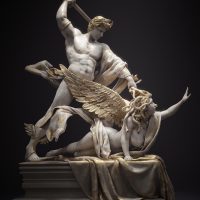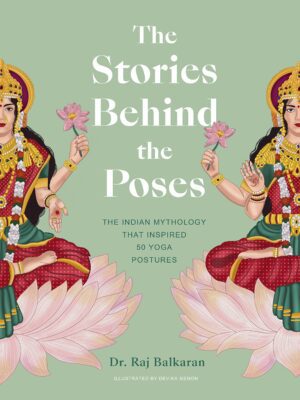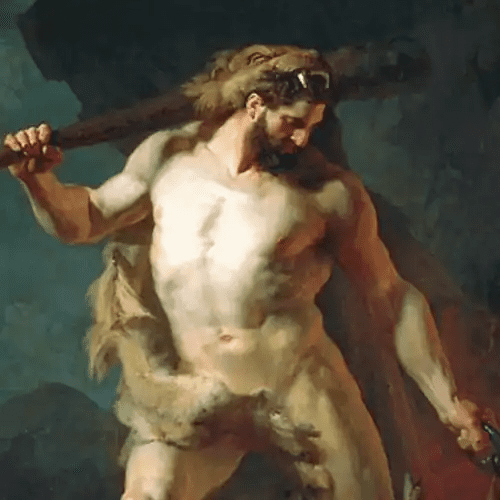Perseus : Slayer of Monsters
Listen
At a glance
| Description | |
|---|---|
| Origin | Greek Mythology |
| Classification | Demigods |
| Family Members | Zeus (Father), Danae (Mother) |
| Region | Greece |
| Associated With | Bravery, Battle, Monster killing |
Perseus
Introduction
Perseus, a renowned hero of Greek mythology, is celebrated for his daring deeds, notably the slaying of the Gorgon Medusa. His tale, woven into the fabric of ancient lore, has endured through the ages, leaving an indelible mark on successive generations. With his courageous confrontation of Medusa and his divine lineage, Perseus epitomizes the essence of heroism and adventure. Born to the mighty Zeus and the lovely Danaë, his existence is intertwined with prophecies, monumental challenges, and divine blessings.
Physical Traits
Perseus, hailed as the epitome of masculinity, exuded an aura of strength and valor, depicted as a striking figure with chiseled features and determined eyes. His robust physique, honed through years of training and combat, mirrored the heroic spirit that propelled his quests, commanding respect and admiration from all who encountered him. Across various artistic renditions, Perseus is portrayed as a youthful warrior adorned with a helmet and shield, symbols of his bravery and prowess. Notably, his triumph over Medusa is often depicted with him brandishing her severed head, a testament to his legendary achievement. Sculptures capture his muscular form, reflecting the physical prowess required for his heroic endeavors, while paintings and vases emphasize his divine lineage through flowing hair and iconic winged helmet, a vital aid in his celebrated exploits.
Family
Perseus emerges from a lineage intertwined with power and prophecy, his father Zeus reigning as the sovereign of the Olympian gods, while his mother Danaë, a princess of Argos, bore the weight of a foretelling that her son would bring about her downfall. This prophecy set the stage for Perseus’ remarkable journey.
Acrisius, Danaë’s father and Perseus’ grandfather, driven by fear of the prophecy, resorted to extreme measures. He confined Danaë within a bronze tower, hoping to shield her from Zeus’ advances. However, the cunning deity found a way, descending upon Danaë disguised as golden rain, thus conceiving Perseus. Learning of Danaë’s pregnancy, the enraged Acrisius condemned them to death, sealing them in a chest and casting them into the sea.
Yet, fate intervened. The chest drifted to the shores of Seriphos, where a compassionate fisherman named Dictys rescued them. Under Dictys’ care, Perseus grew up oblivious to his true lineage and the looming prophecy. Perseus’ ancestry is a blend of mortal and divine, his father being Zeus, the supreme deity who impregnated Danaë, a mortal princess. Their flight from the wrath of King Acrisius led them to Seriphos, where they encountered both adversity and destiny. Notably, Perseus stands as the son of Zeus and Danaë, a mortal woman, and as the grandfather of Heracles (Hercules), another celebrated hero of Greek mythology. The lineage of Perseus, known as the Perseids, boasts numerous illustrious figures in Greek lore.
Other names
Aside from his given name, Perseus is also known by the epithet “Perseus Danaeides,” a nod to his mother Danaë, following the tradition of patronymic nomenclature in Greek mythology, which emphasizes lineage. Perseus earned a plethora of titles and epithets throughout antiquity due to his heroic exploits. Among these, he earned the moniker “Slayer of Medusa” for his most renowned feat. He was also hailed as the “Deliverer of Andromeda” for his gallant rescue of the princess. Titles such as “Son of Zeus” and “Danaë’s Son” underscored his divine heritage, while “Perseus of Argos” referenced his ancestral homeland. These epithets serve as a testament to Perseus’ multifaceted character and his pivotal role in shaping the destiny of ancient Greece.
Powers and Abilities
Perseus, renowned for his valor on the battlefield, demonstrated that his most celebrated triumph, the slaying of Medusa, relied not only on brawn but also on strategy and divine assistance. With the aid of the gods, he navigated the perilous encounter with the Gorgon using ingenuity and cunning. Bestowed with an arsenal of divine artifacts, Perseus wielded his heritage and celestial gifts with precision and skill. Among these treasures, the adamantine sickle gifted by the gods proved indispensable, enabling him to vanquish the formidable Medusa.
His strategic prowess was evident in his approach to the task, evading Medusa’s lethal gaze while executing his plan with precision. Moreover, Perseus received invaluable aid from his divine kin. Hermes, his half-brother, supplied him with winged sandals for swift mobility and a helm of invisibility to evade detection. Athena, the goddess of wisdom and warfare, contributed a polished shield, serving as a reflective barrier against Medusa’s lethal gaze. Additionally, Hephaestus, the master craftsman of Olympus, crafted for Perseus an adamantine sword capable of cleaving through any obstacle.
These divine gifts, coupled with Perseus’s bravery and resourcefulness, propelled him through daunting trials, including the slaying of the sea monster Cetus and the rescue of Princess Andromeda. Perseus’s saga illustrates that true heroism encompasses not only physical prowess but also cunning, intellect, and the blessings of the divine.
Modern Day Influence
Perseus’ impact on contemporary culture remains profound, as his legendary exploits have been retold through various mediums such as literature, film, and visual arts. The constellation bearing his name in the northern sky serves as a celestial homage to his enduring legacy. Through countless reinterpretations, Perseus continues to captivate audiences, resonating with themes of courage, ingenuity, and perseverance across generations.
His narrative has transcended the confines of ancient mythology, inspiring a plethora of artists, writers, and storytellers in the modern era. Artworks depicting his encounters with Medusa and Andromeda abound, while literary works often employ Perseus as a symbol of triumph over adversity and the potency of human creativity. Whether in the pages of the Percy Jackson series, the virtual landscapes of video games, or the grand spectacles of cinematic blockbusters like “Clash of the Titans,” the myth of Perseus retains its allure, captivating audiences worldwide.
Indeed, Perseus’ influence extends far beyond entertainment, permeating realms as diverse as psychology, philosophy, and political discourse. His journey mirrors the universal human quest for identity and purpose, offering insights into the nature of heroism and the indomitable spirit of humanity. In a world beset by uncertainty and adversity, the tale of Perseus stands as a beacon of hope, reminding us of our inherent capacity to rise above our circumstances and forge our own destinies with courage and conviction. However, Perseus’ narrative transcends mere tales of heroism; it embodies a profound exploration of fear, destiny, and the symbiosis of intellect and strength. His legend inspires individuals to confront their own challenges with resilience and determination, drawing strength from the example of a mortal who defied the gods.
Related Images
Newest addition
Frequently Asked Questions
What is lorem Ipsum?
I am text block. Click edit button to change this text. Lorem ipsum dolor sit amet, consectetur adipiscing elit. Ut elit tellus, luctus nec ullamcorper mattis, pulvinar dapibus leo.
What is lorem Ipsum?
I am text block. Click edit button to change this text. Lorem ipsum dolor sit amet, consectetur adipiscing elit. Ut elit tellus, luctus nec ullamcorper mattis, pulvinar dapibus leo.
What is lorem Ipsum?
I am text block. Click edit button to change this text. Lorem ipsum dolor sit amet, consectetur adipiscing elit. Ut elit tellus, luctus nec ullamcorper mattis, pulvinar dapibus leo.
What is lorem Ipsum?
I am text block. Click edit button to change this text. Lorem ipsum dolor sit amet, consectetur adipiscing elit. Ut elit tellus, luctus nec ullamcorper mattis, pulvinar dapibus leo.
What is lorem Ipsum?
I am text block. Click edit button to change this text. Lorem ipsum dolor sit amet, consectetur adipiscing elit. Ut elit tellus, luctus nec ullamcorper mattis, pulvinar dapibus leo.

